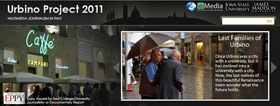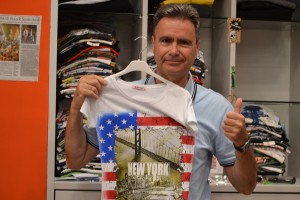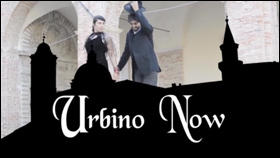Lost in Translation - Urbino Project 2015

- Stephanie Smith
- On June 23, 2015
Having American culture on your t-shirt seems pretty cool, whatever it means.
URBINO, Italy – Overheard in the classical Piazza della Repubblica are hundreds of Italian conversations. One young woman is seen wearing a t-shirt that says “Be Happy. It Drives People Crazy.” A man has a Chicago Bulls flat brim cap on. A young teenager’s shirt says, “I’m not young enough to know everything.”
What is going on here?
To an American who might not understand a word they’re saying, the messages on their t-shirts are easy to understand.
“Just take a look around and you’ll see most t-shirts worn here have prints related to the United States,” said one male Urbino resident in his mid-20s who is wearing a New York Yankees t-shirt, speaking through an interpreter.
Beatrice Rinaldi, a 20-year-old University of Urbino student studying foreign languages who works at Einstein Space, a boutique shop in a small village near Bologna, notices the growth in this trend.
“In the last three or four years, the number of shirts written in English has increased more and more,” says Rinaldi. “If you go into any shop that sells clothing, you’ll find a great percentage of shirts written in English or related to the American culture.”
Emporio Gamba, a local t-shirt shop, is helping to spread this Americanization. Stefano Gamba, the shop’s owner, buys new t-shirts every week. He keeps up with the latest fashion trends with help from his two daughters, ages 14 and 20, who give him a hand in choosing the shirts. Though all the shop’s t-shirts are made in Italy, Gamba said that 80-90 percent of the shirts are related to America.
“People come into the shop to buy a t-shirt written in English and ask me what it means,” he says through an interpreter. “I don’t know what it means.”
Rinaldi agrees. “The interesting aspect is that they’re not interested in what is written on them, they just like the print or style of the shirts,” she says.
In a country famous for its high-end Prada and Gucci couture, it is surprising to see Miami Heat basketball jerseys, I ‘heart’ NY tees, and “#selfie” tank tops in place of the leather bags, snakeskin heels, and fur jackets one might expect of Italian fashion.

Many Italian teenagers wear t-shirts expressing their dream to visit America and experience all it has to offer.
Other t-shirt messages seen around the piazza: “Never stop dreaming,” “Holy Chic,” “I am not Joe,” “Do more of what makes you happy,” “good vibes only.”
Enrica Rossi, an English and Language Methodology professor at the University of Urbino, says that the tension between Italy’s high fashion and American pop culture is especially strong in young Italians.
“On one side, is the Italian fashion,” she says. “From childhood on, everyone recognizes and attributes it to Italy. On the other, is this t-shirt culture of shirts related to America. Wearing these t-shirts is a way to break the idea of everything that has to do with the stereotypical Italian formal fashion.”
Talk to a lot of people on the cobblestone streets here, and you notice that many feel the English language is cool, even if they don’t speak it. Most wearing t-shirts with words choose a shirt written in English rather than Italian. They say English is funnier, cuter, more influential, and more elegant.
These qualities, in turn, correlate to an idea of American culture.
Just as Americans may fantasize over the Italian ways of life – the delicious food, the regional wine, and the gorgeous views – the reverse is true as well. “In a certain way, Italians are obsessed with the American culture and with the American lifestyle, two aspects that we can relate to the idea of the ‘American Dream’,” says Rinaldi.
Italians, especially Italian teens and young adults, often watch American TV shows, and get a certain idea of American culture – whether or not their ideas are true. And in fact, oftentimes they are not. “Our young people watch shows like Jersey Shore and think that a lot of culture has to do with people getting drunk and getting on drugs,” says Rossi.
This explains a lot. Emporio Gamba’s most popular shirt shows Marilyn Monroe decorated in tattoos. The combination of Monroe and tattoos is disconcerting, but to Italians, it is apparently a powerful grouping of American rebellion.
Historically, and still the case today, Italian people are strongly linked to their families. The bond between generations in families perpetuates traditions, rules and customs. This is not the case in America, and Italian teens apparently long for this implied liberation from their inheritance.
Italian students believe that Americans leave their homes at the age of 16 and sometimes never return. In a country that leads their children to thinking they will never have to care for themselves, this is a shocking idea, though pleasing to many.
“Italians, particularly teenagers, are absolutely fascinated with this world which they don’t know,” Rossi says, remembering the t-shirts she wore when she was young. “Wearing these t-shirts is making them feel more independent and connected to the American culture.”
Slideshow

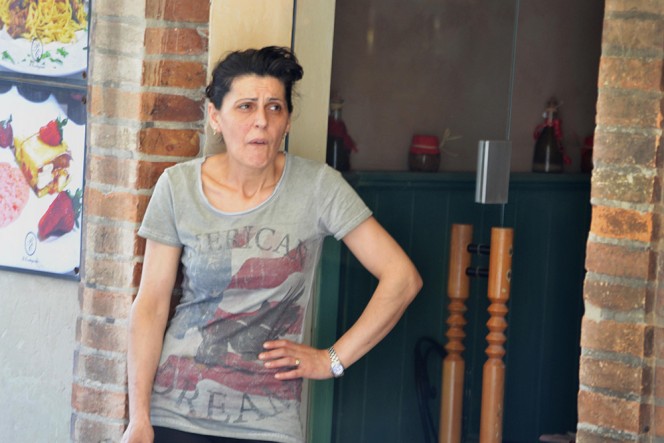
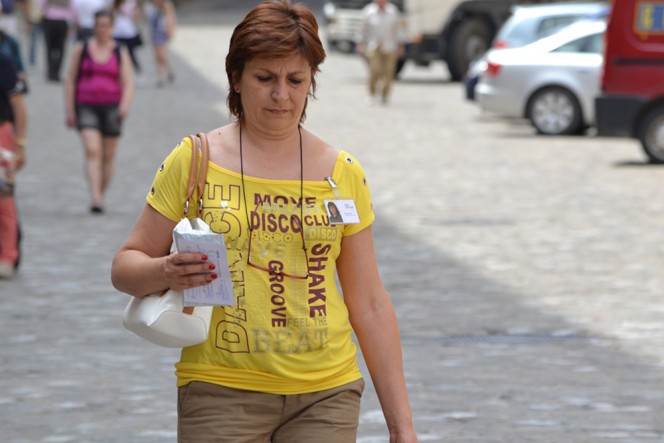
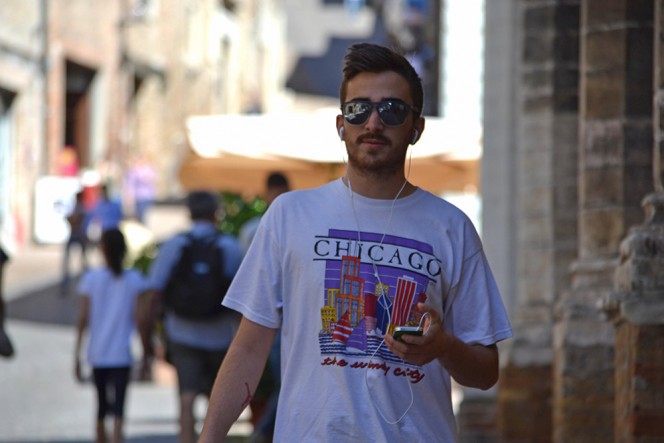

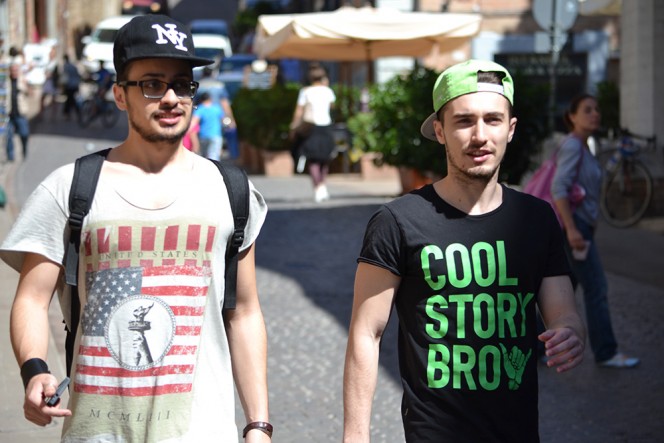
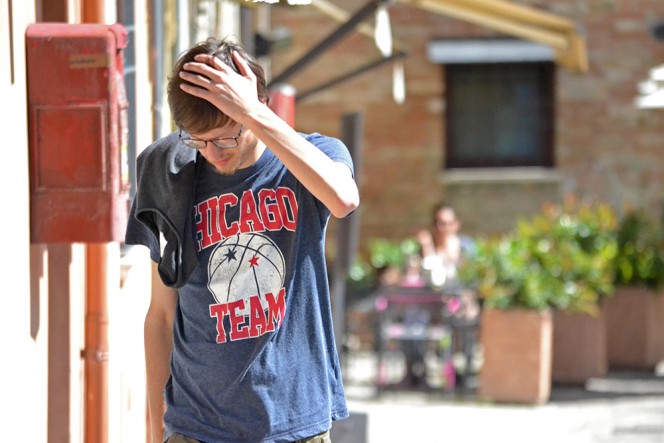
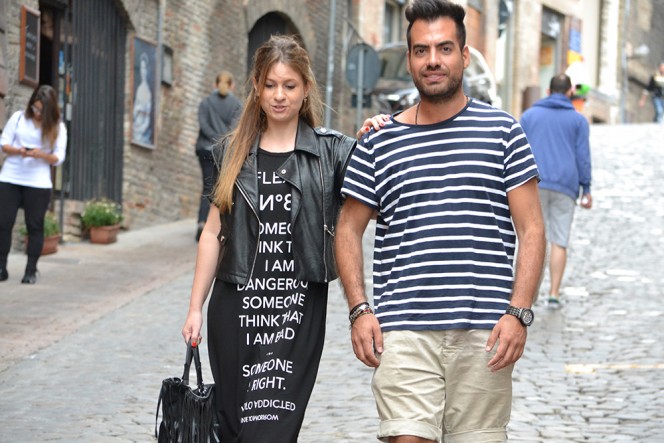
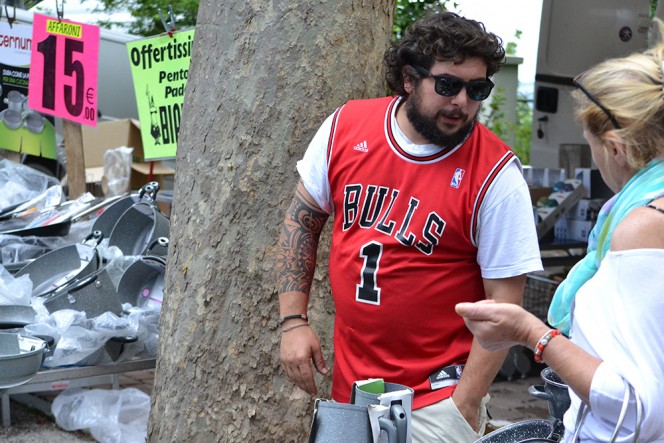
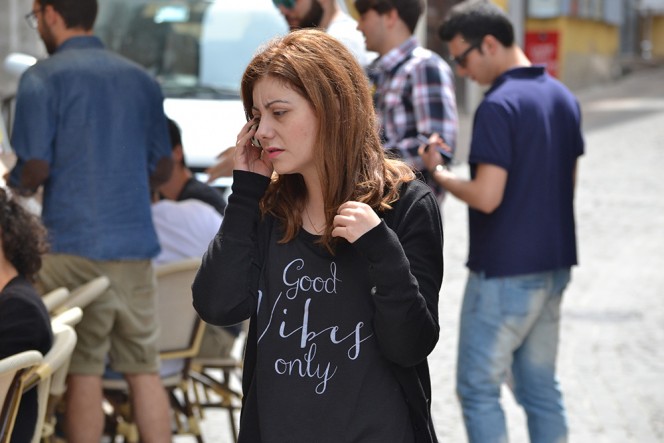
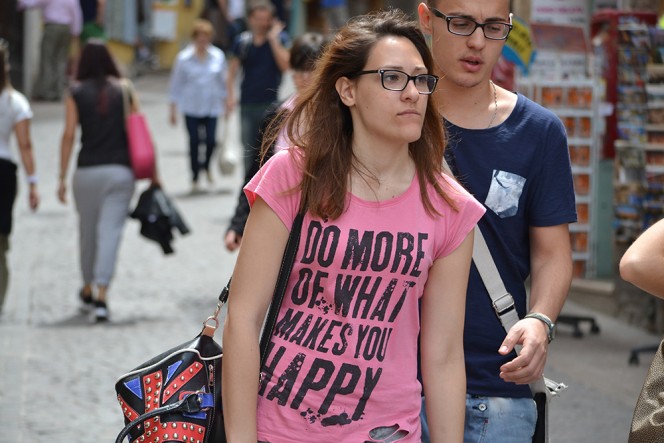
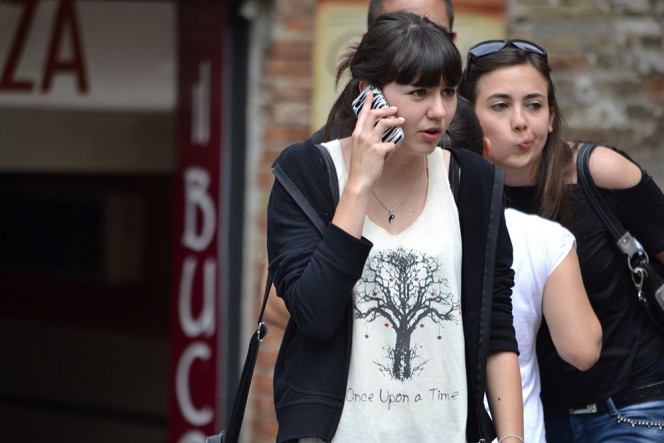

Video (By Stephanie Smith & Thomas Fitzpatrick)
Order Urbino Now Magazine 2015
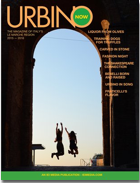 You can read many articles appearing on this website in Urbino Now Magazine 2015. To order a full-color, printed edition, please visit MagCloud.
You can read many articles appearing on this website in Urbino Now Magazine 2015. To order a full-color, printed edition, please visit MagCloud.Reporters
Courtney Bochicchio
Christina Botticchio
Deanna Brigandi
Alysia Burdi
Anita Chomenko
Isabella Ciano
Rachel Dale
Caroline Davis
Nathaniel Delehoy
Brittany Dierken
Sarah Eames
Thomas Fitzpatrick
Kendall Gilman
Michele Goad
Julianna Graham
Yusuf Ince
Devon Jefferson
Rachel Killmeyer
Kaitlin Kling
Abbie Latterell
Ashley Manske
Rachel Mendelson
Alyssa Mursch
Manuel Orbegozo
Dylan Orth
Olivia Parker
Katie Potter
Gerardo Simonetto
Jake Troy
Stephanie Smith
Tessa Yannone
Ryan Young
Promotional Video Project
Nicole Barattino
Richard Bozek
Rebecca Malzahn
Abigail Moore
Charlie Phillips
Story Categories
Past Urbino Projects
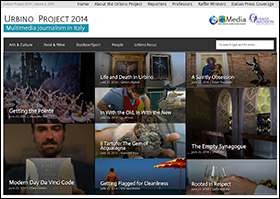 Read stories and view the photography and video from last year's website.
Read stories and view the photography and video from last year's website.
2013 Website
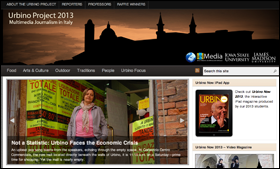 Read stories and view the photography and video from the 2013 website.
Read stories and view the photography and video from the 2013 website.
2013 Urbino Now App
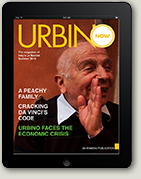 Interactive Apple iPad app covering culture and travel for visitors to Urbino and Le Marche.
Interactive Apple iPad app covering culture and travel for visitors to Urbino and Le Marche.
2012 Website
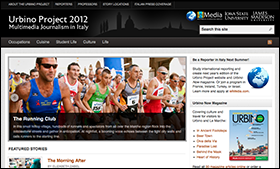 Read stories and view the photography and video from the 2012 website.
Read stories and view the photography and video from the 2012 website.
2012 Urbino Now Magazine
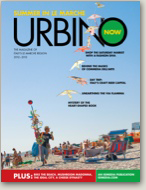 Explore past coverage from the 2012 edition.
Read all 30 magazine articles online or visit MagCloud to order a printed copy of Urbino Now 2012.
Explore past coverage from the 2012 edition.
Read all 30 magazine articles online or visit MagCloud to order a printed copy of Urbino Now 2012.
2011 Website
